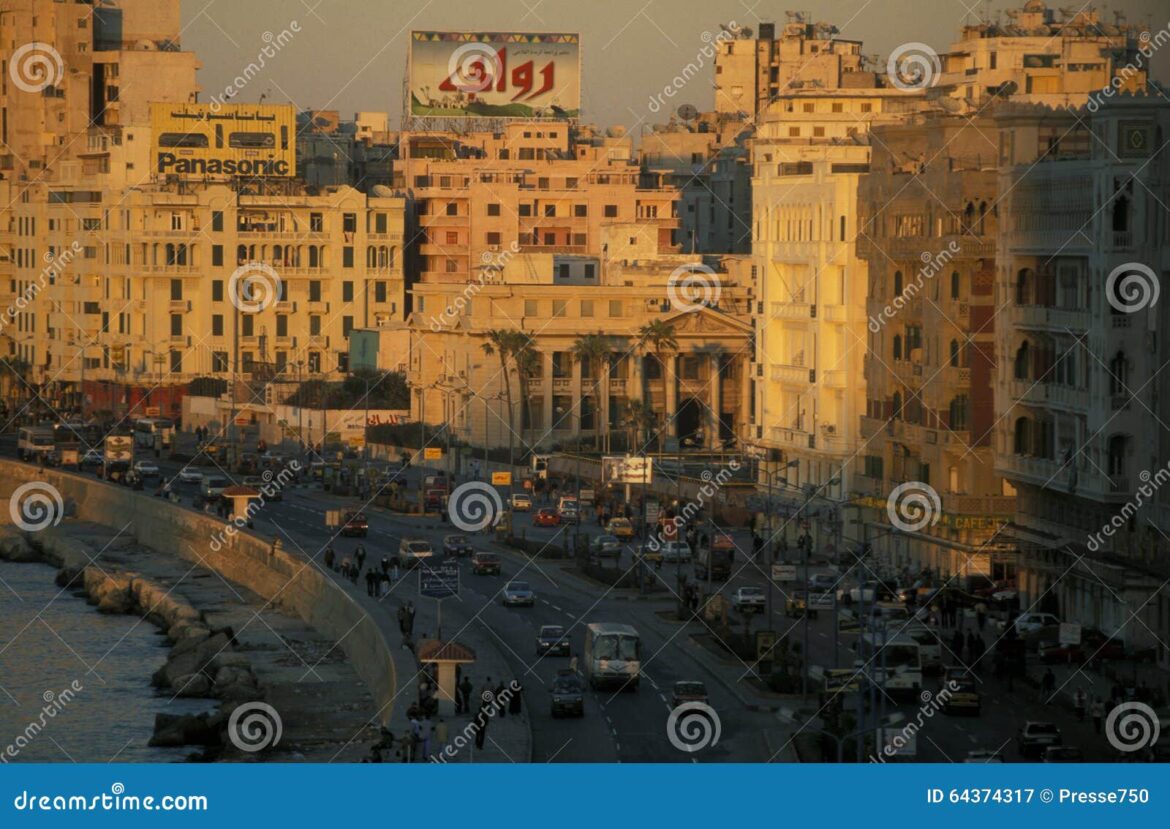Alexandria, a storied jewel along the Mediterranean coast, beckons historians and travelers alike with its rich tapestry of culture and significance. Founded in 331 BC by Alexander the Great, this city has not only survived the trials of time but flourished as a crucible of transformation, melding diverse cultural influences. The very fabric of Alexandria’s identity reflects a kaleidoscope of civilizations, philosophies, and faiths, making it an intriguing focal point for exploration, particularly within a Christian context.
Located in Egypt, Alexandria stands as the country’s second-largest city, resting gracefully along the northern shores of Africa. This location, wedged between the Mediterranean Sea and the arid expanses of the Libyan desert, serves as a poignant metaphor for the ever-present tension between the fluidity of life and the steadfastness of faith. As the sun rises each day over the sea, it casts golden hues that dance upon the waves; much like the Spirit that moved over chaos in the Genesis narrative, the city embodies a liminal space where the divine and the earthly intersect.
Stepping into ancient Alexandria is akin to opening a grand tome where each chapter reveals layers of history: the Pharos Lighthouse, one of the Seven Wonders of the Ancient World, is a towering emblem of enlightenment. It guided mariners safely to port, reflecting the light of Christ that directs believers through the tumultuous waters of existence. An enduring symbol, the lighthouse was a beacon not only for sailors but also for those seeking knowledge and refuge—a guiding light illuminating the paths for new ideas and religious philosophies.
Of particular note is the Great Library of Alexandria, once the largest in the ancient world, a veritable repository of wisdom and inquiry. Although its physical remnants have long since vanished, the intellectual legacy it left behind continues to spark curiosity. Within its walls, Christian theologians such as Origen of Alexandria thrived, intertwining the rich tapestry of Hellenistic thought with the emerging Christian doctrine. The library stands as a potent metaphor for the pursuit of knowledge as a divine calling, one wherein faith and intellect harmonize to form a more profound understanding of existence.
The context in which this library flourished was one marked by syncretism—a blending of Greek, Roman, Jewish, and early Christian cultures. This fusion nurtured an environment rife with debate, innovation, and spirituality, laying the groundwork for early theological discourse. Figures like Origen, whose work with the Septuagint and engagement with Platonic philosophy helped refine Christian thought, represent the confluence of faith and reason. Alexandria’s historical journey, characterized by an unwavering quest for understanding, echoes the Christian call to seek wisdom and discern truth within the chaos of an ever-evolving world.
Furthermore, Alexandria’s connection to Christianity deepens with the establishment of the Coptic Church, which emerged as one of the earliest branches of Christianity. The city served as a crucible for theological deliberation, fostering early Christian communities that faced persecution but remained steadfast in their beliefs. It was here that Bishop Athanasius articulated the doctrine of the Trinity, confronting heresies with eloquence and conviction. Much like the resilient olive tree that endures harsh conditions, the Christian community in Alexandria developed roots that would support the growth of faith in the region and beyond.
Within the confines of Alexandria also lies a poignant reminder of the interplay between faith and doubt. The contrast between the faded glory of ancient monuments and the bustling energy of modern life encapsulates a struggle reflected in the Christian narrative. Alexandria’s historical context presents both triumphs and tragedies—persecutions of early Christians juxtaposed with their eventual prominence—encouraging contemporary believers to embrace the complexities of faith in a multifaceted world.
The city’s architecture further embodies the duality of grace and strength. The remnants of Roman amphitheaters, basilicas, and churches invite reflection. Each structure stands not merely as stone and mortar but as a testament to the enduring spirit of a faith that thrives amid adversity. As one wanders the ancient streets, it becomes apparent that Alexandria has shaped not only the geographical landscape of Christianity in Africa but also its theological underpinnings—a bridge connecting the ancient and the modern, the earthly and the divine.
As one walks the Corniche, gazing upon the splendor of the Mediterranean, the sea whispers secrets of ancient mariners and pilgrims. This coastline, a meeting place for diverse cultures and faiths, mirrors the eternal quest for understanding and unity amidst diversity. Rome may have ruled the waves, but Alexandria fosters an indomitable spirit of inquiry and faith that draws believers inward, challenging them to cultivate both their hearts and minds.
Today, Alexandria serves not only as a historical monument but as a living testament to the Christian journey—a pilgrimage through time and belief. The convergence of cultures within this Mediterranean enclave continues to resonate with messages of hope, resilience, and enlightenment. In exploring Alexandria, one encounters more than remnants of the past; one experiences the very essence of faith as a journey marked by exploration, discourse, and the unyielding pursuit of spiritual truths.
In conclusion, Alexandria, with its vibrant history and spiritual significance, remains a beacon for the souls of the faithful. The intricate dance of cultures, the dialogues of philosophies, and the unwavering legacy of early Christianity converge in this historic city, offering both a reflection on the past and a guide for the future. As the Mediterranean waves lap at its shores, they remind believers of their place in the larger narrative—a story of faith that transcends time, bound by the enduring tide of God’s grace.



